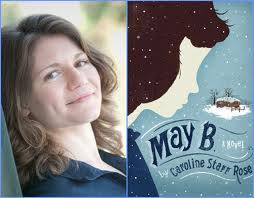Follow our Pinterest Boards
When I first learned about alliteration in a writing class, I couldn’t believe there was a word for it. I used it in my poetry all the time! Then I learned about anastrophe and deus ex machina and I began to discover a whole world of literary devices and techniques.
Alliteration is the repetition of initial consonant sounds of accented syllables in a phrase: dancing dragons.
I discovered literary techniques that I’d seen in storytelling but hadn’t used in my own work. For example, anastrophe is when the usual word order of a sentence or phrase is reversed. One of the most famous characters in the movies speaks almost exclusively in anastrophe: Yoda doesn’t ask “Are you ready?” He says, “Ready are you?”
 There were also literary devices that I’d neither noticed nor used. Deus ex machina is when a character or event is suddenly introduced in a narrative for convenience. For example, when all the main characters are trapped and some long-lost cousin who has never been mentioned suddenly appears and rescues them, this is deus ex machina, and it’s usually seen as a cheap way to resolve a sticky situation.
There were also literary devices that I’d neither noticed nor used. Deus ex machina is when a character or event is suddenly introduced in a narrative for convenience. For example, when all the main characters are trapped and some long-lost cousin who has never been mentioned suddenly appears and rescues them, this is deus ex machina, and it’s usually seen as a cheap way to resolve a sticky situation.
What Are Literary Devices and Techniques?
So what are literary devices and what applications do they have for writers?
Wikipedia defines a literary device as follows: “A literary technique (also known as literary device) is any standardized method an author uses to convey his or her message.” According to Wikipedia, this can include foreshadowing, flashbacks, and plot twists, things we all recognize as elements of storytelling.
I’ve found some resources that make a distinction between storytelling techniques, which deal with the structure of a story, and language techniques, which deal with how we choose and use words.
Understanding and Identifying Literary Devices and Technique
Have you ever come across a word, phrase, or sentence that mesmerized you, but you couldn’t figure out why? It might have been a line of dialogue that stuck with you or a compelling scene in a story. You know there’s a reason it was so effective but you can’t put your finger on it.
In these cases, there’s a good chance a literary device or technique is at play. And if you can identify these devices and techniques, you’ll gain a better understanding of how to make the best possible decisions in your own writing.
For example, we all know there are a dozen ways to write a sentence. If we’re trying to choose the right word for a sentence and there are several to choose from, we might make our decision based on a literary device.
Let’s look at an example. In the sentences below, would you choose the word store or market?
I have to stop by the store.
I have to stop by the market.
I would probably choose store because of the alliteration that occurs with the words stop and store.
While this is something a lot of writers do naturally—choose a word because it’s the one that sounds the best—it’s immensely helpful to have a more concrete reason, to know that you’re choosing a phrase because it applies alliteration rather than “just because it sounds good.”
When we adopt literary devices and techniques into our vocabularies, we can talk about writing, language, and story more efficiently and intelligently.
Using Literary Devices in Your Work
Let’s say you’re working on a novel and trying to polish a sentence that’s giving you trouble. You’re looking for the right word—the perfect word. If you have studied literary devices, then they are at your disposal and can help you make smarter choices about which words and phrases to use.
Literary techniques can also be immensely helpful in storytelling. When I’m working on a story and get stuck, I often turn to a list of storytelling techniques to see if any of those techniques could help me get unstuck. I almost always find a solution, something that propels me past whatever obstacle I’m facing.
Literary devices and techniques are valuable tools that we can use to better understand literature. By applying these concepts to our own writing projects, we can strengthen our work and make it more compelling.
READ MORE
Fiction Notes has posted before on How to Use Words: 8 Literary Devices, How to Arrange Words: 20 Literary Devices and How Winston Churchill Used Literary Devices. (That’s 28 literary devices to study and use in your next piece of writing!)
About the Author: Melissa Donovan is the founder and editor of Writing Forward, a blog packed with creative writing tips and ideas. She has also authored a book of creative writing exercises and works as a web designer and copywriter.




